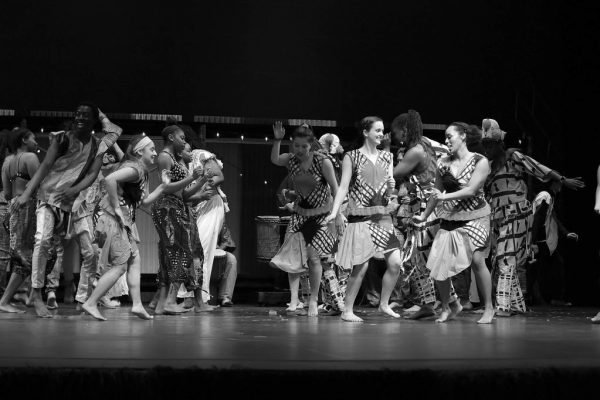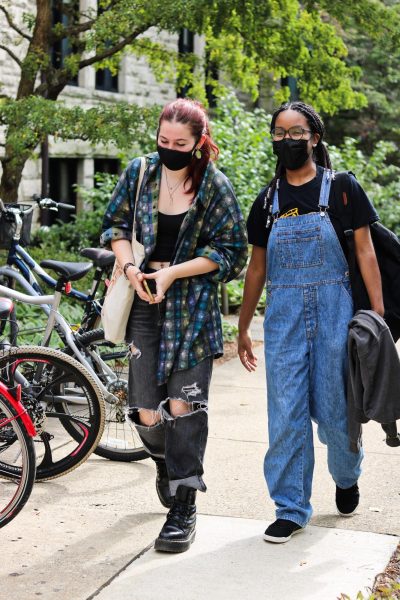Voter Suppression Threatens Democracy
After more than a year of local and state politicians campaigning around the country, the midterm elections are finally over and the results are in. The much-discussed “blue wave” dominated in states like Nevada, Wisconsin, and Michigan, but failed to reach key races in Florida, Texas, Georgia — and Ohio. Regardless of whether or not you are pleased with Tuesday’s outcome, now is not the time to rest.
The midterm election results show us a couple of things. First, there are many voters in key states who are discontent with the Republican Party and have mobilized to create change. This phenomenon was exemplified in Texas, where Democrats campaigned on both a state and national level for Representative Beto O’Rourke in his uphill battle to unseat Senator Ted Cruz. Conversely, we also learned Tuesday that there are many voters in key states, like Ohio, who are happy with the direction in which our country is headed — or at least content to wait and see. Second, the results reveal that there are some generally blue states that may not continue to elect Democratic leadership. For example, the governor’s race in Connecticut — which was supposed to be an easy win for Democrat Ned Lamont — ended up being a much closer race than anticipated, with his opponent, Bob Stefanowski, leading in the polls at various moments throughout election night. Third, and most importantly, the election shows us the need for institutional change to our electoral system.
In the two years following Donald Trump’s election, Democrats around the country banked on voter turnout as a way to take back the House of Representatives and the Senate in 2018. The theory was simple. If Democrats raise enough money, run excellent campaigns, and get out the vote, there won’t just be a blue wave, there will be a blue tsunami. And this is exactly what Democrats did. Democrats overwhelmingly out-fundraised Republicans with the help of small donor donations by using fundraising technology like ActBlue. Democrats executed well-run campaigns in highly competitive counties, districts, and states across the country. Early voting numbers far surpassed those from the 2014 midterm election. However, even with these accomplishments, there was no overwhelming blue wave that many Democratic optimists had hoped for.
If this election taught us anything, it is that the biggest enemy to true representation in our government is voter suppression. In Georgia’s gubernatorial race, Republican candidate and Secretary of State Brian Kemp used his powers as Secretary of State to put 53,000 voter registrations on hold, nearly 70 percent of which were for Black voters, by using an “exact match” system, which stops voter registrations if there are any discrepancies with other government records. In North Dakota, voter ID laws prevented thousands of Native Americans from voting, since many of them live on reservations. Many Republican leaders claim that these strict voting laws are in place to protect our elections against fraud. The truth is, these laws are instituted to oppress marginalized groups.
Many politicos will say that now that the midterm election has ended, it is time to start looking toward the 2020 presidential election. This is not wrong. Brian Walsh, president of the pro-Trump America First Action super PAC, said Wednesday, “The re-elect begins today.” Democratic politicians all over the United States have already begun exploratory committees for potential presidential runs. As someone who has worked on a political campaign, you may expect me to urge you to volunteer on a campaign. But this is not the issue we should be focusing on yet.
The voter suppression that runs rampant in many states must be addressed. As young people, we need to start mobilizing not just for one candidate, but for the eligible voters all over the country who were unable to cast their votes in the midterm election due to unreasonable voter ID laws, voter purging, restrictive voter registration, and faulty ballot machines. It is time to take a stand against the institutional oppression that prevents disenfranchised communities from having their votes matter. We cannot count on voter turnout to win elections when the very system of electing officials prevents and suppresses turnout. When you promote 2020 presidential candidates, remember that none of it will matter if we do not make it possible for every eligible voter to vote. Our democracy is rooted in the belief that every citizen has a say in our government’s leadership. In order to save our democracy, we must end voter suppression once and for all.




